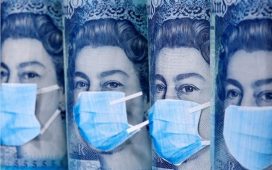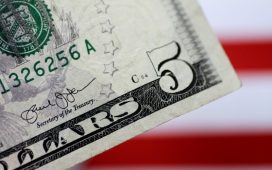ExchangeRates.org.uk – On UK General Day, the Pound to Euro exchange rate () is seen trading at around 1.18084, marginally lower on yesterday’s close. UK markets are steady and even have a positive tone as the election gets underway. The Pound to Dollar exchange rate () is 1.27517. The usual political uncertainty that usually weighs on markets is not present as Labour looks almost certain to win. Sterling could gain further against the euro as the outcome of the French election is anything but certain.
Thursday’s European open saw a brief move higher in stock markets but the and are already fading in the first hour as the French election comes into focus this weekend. The has, however, held on to its gains of 0.6% and UK markets have a positive tone as the UK election gets under way. Sterling has stayed steady and even made some moderate gains this week which is unusual ahead of an election, although the political uncertainty which usually weighs on a currency is not present as bookmakers give Labour around a 90% chance of winning the election.
UK Markets Steady into the Election
The election result looks more of a political certainty than uncertainty and it keeps getting better for Keir Starmer as ‘Sun’ newspaper put its support behind Labour on the eve of the election. This was a last-minute U-turn and the first time the paper has backed Labour since 2005. Starmer recognized its significance – the Sun has a major influence – and said, “I am delighted to have the support of the Sun. It shows just how much this is a changed party, back in the service of working people, and that is the change on offer tomorrow in this election.” The Tory-leaning Times also offered support, and said “democracy requires change.”
It seems Labour could be set for a commanding majority and there is a sense of optimism as Starmer hailed a “new age of hope and opportunity.” Markets do seem to like the fact Labour will have a large majority and therefore a strong mandate. Starmer’s policies are sensible and there is unlikely to be a repeat of the Truss/Kwarteng fiasco of the last government.
“The economic policies put forward by Labour are very cautious and the strategy is clearly to strengthen trust with voters that it can govern and manage the economy. We certainly assume better political stability is on its way with Labour intending to focus on ‘wealth creation’,” said Derek Halpenny, head of FX research at MUFG Bank. Indeed, fiscal policy is unlikely to diverge much from the sensible policies of the current Chancellor Jeremy Hunt. His hands have been tied somewhat by a lack of ‘fiscal headroom’ and Labour will have the same limitations. There will, however, be rate cuts on the way, perhaps as soon as August, and that could help UK growth. Assuming there are no major surprises and Labour win convincingly, UK markets are likely to hold steady and the focus may quickly shift to other pressing issues such as BoE policy, inflation and growth.
Sterling has gained slightly against the euro this week as the rally in faded from 0.85 resistance. The fate of the pair now depends more on the French election than it does the UK election, with a move through 0.84 possible should the right-wing National Rally (RN) party win at the weekend. Marine Le Pen is a well-known Eurosceptic and the EU will be weakened by an RN victory. Somewhat surprisingly, nerves over the French election have eased throughout the week, and as ING explain, are contained to French markets rather than across the EU. “Tensions related to the French elections have eased further, with the 10Y spread of French bonds versus Bunds having tightened by almost 5bp to now stand at just below 70bp… As such, the still somewhat elevated French spreads now appear to reflect risks largely contained to the country. We think such wider levels are justified, as even the baseline outcome of a hung parliament does not bode well for the country’s fiscal problems.”
Whether this situation holds into Friday’s close remains to be seen, but the euro is clearly one of the riskier currencies at this time.
This content was originally published on ExchangeRates.org.uk











